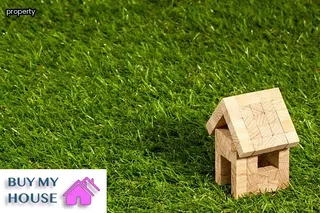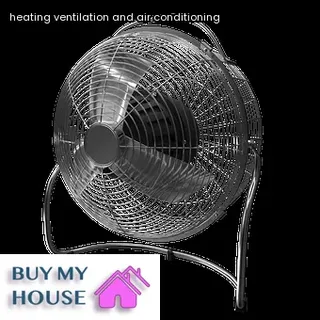Mold damage is a serious problem that can have a major impact on the health and safety of your family. It is important to assess the mold risks in your home to determine if it has reached unsafe levels or could cause potential damage.
The presence of mold can be determined through visual inspection, smell, or testing by a qualified professional. Visible signs include discoloration on walls, ceilings, or flooring; musty odors; and even visible growths.
If there are areas where water leakage has occurred or high humidity levels, they should be inspected for possible mold growth as well. In some cases, mold growth can become so severe that it is necessary to condemn the house due to health risks and potential damages.
If you suspect any kind of mold damage in your home, hire an experienced professional to assess the situation and provide advice on how best to address it.

Mold is a major issue for homeowners and can lead to serious damage to the property. When it comes to understanding the severity of a mold problem, there are several factors that need to be considered.
The source of the water or moisture that caused the mold growth must be identified and eliminated before any remediation can begin. It's also important to understand how much of your home has been impacted by mold, as this will determine the scope of the project.
Additionally, areas where there are high levels of humidity or poor ventilation should be monitored for signs of mold growth. If left untreated, a significant mold infestation can cause structural damage that may require extensive repairs or even result in your house being condemned.
It is therefore essential to act quickly when you suspect that you have a serious problem with mold in order to avoid further damage and potential health risks.
Mold infestations can be extremely damaging to any house, and the costs of repair can quickly add up. To avoid permanent damage, it is important to take preventive steps when it comes to structural maintenance.
This includes regularly checking for water leaks, which can cause mold growth if not addressed in a timely manner. Additionally, properties should be inspected regularly for signs of mold such as discoloration or visible growth on walls or ceilings.
It is also imperative to make sure all ventilation systems are working correctly and that air circulation is adequate throughout the home. Poorly ventilated areas can easily become damp and provide an environment ideal for mold growth.
Taking these measures on a regular basis will help ensure your property remains safe from potential mold-related damage and potential condemnation if left unchecked.

Controlling and preventing mold infestations in the home is an important aspect of maintaining a safe and healthy living environment. To combat mold growth, homeowners should regularly inspect their property for potential moisture sources such as leaking pipes or cracks in walls or floors.
Additionally, any water damage should be addressed immediately to prevent the spread of spores. It’s also beneficial to maintain proper ventilation in the home by utilizing fans, air conditioners, and dehumidifiers to reduce humidity levels that are conducive for mold growth.
Regular cleaning with a diluted bleach solution can help kill existing spores and keep surfaces free from dust and dirt buildup which can feed fungal growth. Homeowners should also consider installing mold-resistant building materials like wall paneling and sealants as they are less likely to support the growth of fungi than other materials.
Taking these steps can help protect your home from being condemned due to extensive mold damage.
Mold buildup in the home can be a serious health hazard as well as a cause for house condemnations. Mold can originate from moisture collecting in walls, floors, and ceilings due to inadequate ventilation or plumbing leaks; poor construction or maintenance of the building; flooding of the building with water; and humidity levels that are too high or low.
Allergic reactions, skin irritation, respiratory problems, and other illnesses can result from mold growth. It is important to ensure proper insulation, air conditioning/heating systems, ventilation systems and dehumidifiers are in place to prevent mold accumulation.
Regular inspections of plumbing systems should also be carried out to prevent undetected leaks which may lead to mold growth. Professional contractors should be consulted to determine if any repairs need to be made before the situation gets worse.
If the mold build-up is beyond repair and becomes a health hazard, it could lead to house condemnation by local authorities.

A condemned house is one that has been found unfit for human habitation due to a variety of issues, such as structural damage, fire hazards, or health concerns. In the case of mold damage, a house may be deemed condemned if the level of mold exceeds what is considered safe by local building codes and health regulations.
If a home is found to have unsafe levels of mold growth, the owner must remediate the problem before it can be occupied again. This includes removal of all mold-infested materials and replacement with new materials.
The owner may also need to make additional repairs to ensure the safety of occupants in the future. It is important to note that condemnation does not necessarily mean demolition; it simply means that the house must first be brought up to code before it can be legally inhabited again.
Mold can cause a variety of health concerns and it can also damage the infrastructure of a house. While not all mold infestations result in condemnable situations, unchecked mold growth can lead to dangerous conditions that may require a home to be condemned by local authorities.
Mold damage is often caused by high levels of humidity and moisture, which can allow fungi to grow rapidly. If left unattended, this type of situation can worsen quickly as the mold spreads throughout the house, affecting walls, ceilings, floors and other structures.
The presence of extensive mold growth can be hazardous to both occupants and visitors due to potential airborne exposure. Furthermore, certain types of mold have been known to weaken the structure of a home by eating away at wood and other materials over time.
It is important for homeowners to take proactive steps in detecting any signs of mold in their homes and addressing the issue before it escalates into an unsafe environment.

The costs associated with remediating a home infected with mold can be quite expensive depending on the severity of the damage. In some cases, replacing flooring and drywall may be necessary in order to completely remove all traces of mold spores, which can add up quickly.
Air purifiers and other types of ventilation systems may also need to be installed to ensure that the air inside the home is clean and free from contamination. Depending on the size of the area that needs to be treated, hiring a professional mold remediation service could cost thousands of dollars.
Additionally, homeowners should factor in additional expenses such as testing for hazardous levels of mold before and after the treatment process, as well as possible legal fees if their home has been deemed unsafe for occupancy due to mold damage. Therefore, it is important for homeowners to understand all potential costs associated with remediating an infected home before taking action.
When it comes to selecting the best professional remediation service for mold damage in your home, there are a few key factors to consider. Firstly, you need to make sure that the company has experience with mold removal and is qualified to do the job thoroughly and safely.
Secondly, check their safety record by researching any complaints that have been filed against them. Next, look into their customer service and responsiveness to ensure you will be well taken care of throughout the entire process.
Additionally, ask about their methods for handling mold removal and if they offer any guarantees or warranties on their work. Finally, investigate their pricing structures and see if they provide discounts or any other financial incentives that would benefit you in the long run.
By doing all this research ahead of time you can be sure you’ve chosen the right professional remediator for your particular situation so that your home can be free from mold damage once and for all.

The re-occupancy of a home that has had excessive levels of mold can be a lengthy and complex process. It is important to ensure that the home is completely safe for re-occupancy, and that all existing mold has been fully treated.
Thorough inspection should be conducted to confirm that any potential health risks have been eliminated. If the mold is not properly addressed, it can cause significant damage to the structure and potentially lead to the home being condemned.
Professional remediation and restoration experts should be consulted in order to inspect, evaluate, and treat the home properly. In most cases, this will involve removal of affected materials, cleaning or replacement of contaminated items, as well as repair of any structural damage caused by the mold.
Once these steps have been completed, occupants can return with peace of mind knowing that their home has been thoroughly treated against the presence of mold.
Mold is a type of fungus that can grow in many places indoors and outdoors. While it is generally not dangerous, prolonged exposure to mold can have serious health effects on individuals.
Inhaling or touching mold spores can cause allergic reactions, such as coughing, sneezing, asthma attacks, and fatigue. It can also irritate the eyes, skin, nose and throat.
In the most severe cases, long-term exposure to mold may lead to respiratory illnesses such as lung infections and bronchitis. People with weakened immune systems or existing respiratory conditions are especially at risk for these more serious health problems caused by mold.
As a result of these potential risks, it is important to determine if your house has any signs of mold damage and address it immediately.

Living in a home with a mold infestation can have devastating health effects, particularly when toxic molds are present. Chronic exposure to these molds can cause long-term breathing problems, headaches, nausea and fatigue.
In extreme cases, it has been linked to cancer and other severe illnesses. It is also important to note that mold damage can be difficult and expensive to repair, which means that your house may actually be condemned if the infestation is too extensive.
If you suspect that your home has an issue with mold, it is best to seek professional help and take appropriate measures as soon as possible in order to avoid any serious health risks associated with prolonged contact with toxic molds.
Under U.S laws, the presence of toxic mold in a home can be considered a health hazard and is subject to abatement measures.
The Environmental Protection Agency (EPA) outlines regulations concerning the safety and disposal of hazardous materials such as mold, which must be followed by all citizens. In cases where mold growth has become extensive and poses a significant risk to the occupants of a dwelling, local authorities may take action to ensure the safety of those living there.
This may include ordering an inspection or testing for the presence of toxic molds, or issuing orders for remediation or even condemnation if deemed necessary. Property owners are responsible for ensuring that their dwellings are maintained in accordance with EPA regulations, including adhering to any abatement orders issued by local officials.
Failure to do so may result in fines or other legal penalties. It is important to note that while some molds can cause serious health risks, not all molds present a danger and should not automatically lead to condemnation.

When it comes to addressing electrical issues to prevent mold growth in your home, it is important to take necessary precautions. One of the most important steps involves identifying any areas around wiring, outlets, and switches that may be vulnerable to moisture or condensation.
If any of these areas are damp or wet, you should dry them off immediately and move on to inspecting the overall condition of your wiring. If the wiring shows signs of wear and tear, such as cracking insulation or discoloration, then it needs to be replaced right away.
Additionally, if you have an old fuse box that is outdated or prone to causing sparks, then replace it with an updated model as soon as possible. Finally, make sure that all electrical systems in your home are up-to-date with the appropriate safety features.
By following these steps and addressing any electrical issues quickly and appropriately, you can help prevent mold growth in your home and potentially avoid a potential condemnation due to damage caused by mold infestation.
Black mold is one of the most dangerous types of mold and can cause a variety of health problems, including respiratory illnesses. It is also one of the primary reasons for house condemnation due to the extensive damage it can cause.
When black mold begins to grow in a home, it spreads quickly and can attack walls, ceilings, carpets and other areas around the house. This type of mold should not be taken lightly as it can create serious structural damage to a home, creating an unsafe living environment that may require condemnation.
If black mold is found growing in your house, you should contact a professional immediately to assess the level of damage caused by the mold and determine if your house needs to be condemned. While many states have regulations regarding mold removal and remediation, some may require that a house be condemned due to the extent of damage caused by black mold growth.

When it comes to mold damage in the home, many people wonder if their house can be saved or if it must be condemned. While it is possible for a house to be deemed uninhabitable due to extensive mold damage, in most cases, the issue can be mitigated so that the house may still be saved.
The key is understanding the source of the mold and taking steps to address it directly. By addressing the root cause of the mold problem, homeowners can often save their homes from condemnation.
This involves finding and eliminating all sources of moisture that could be causing mold growth, such as leaks or condensation build up on windows and walls. Additionally, proper ventilation should also be installed within a home in order to create an environment that is not conducive to mold growth.
Lastly, professional cleaning services may also need to be implemented in order to clean away any existing mold colonies that have already taken hold on surfaces within the home. With these steps in place, homeowners can often save their homes from condemnation due to mold damage.
Mold is a serious issue that can lead to health risks and structural damage of your home. If left unchecked, mold can cause a variety of health problems for you and your family, including respiratory illness, asthma, allergies, or even more serious illnesses.
In addition to potential health hazards, prolonged exposure to mold can also cause structural damage to your home that may require costly repairs or even result in the condemnation of your property. The first step if you believe there is mold in your home is to contact an expert who specializes in assessing and resolving mold issues.
An inspector will be able to tell you the type of mold present, the severity of the problem, and what steps should be taken to address it. Depending on the extent of the problem and the level of risk posed by the mold infestation, remediation efforts may range from simple cleaning with detergents or bleach solutions to full-scale removal and replacement of affected materials.
If extensive damage has been done due to a neglectful attitude towards addressing a mold issue in your home, it is possible that local authorities may deem it necessary to condemn your house as unsafe for habitation. This would mean that any occupants would need to vacate immediately until repairs have been completed.
While not common, this outcome should serve as a reminder to homeowners that taking swift action when dealing with potential mold infestations is essential for protecting their health and their property from further damage or loss.
When a house has sustained mold damage, it is often necessary to determine whether the issue can be remediated or if the property should be condemned. Walking away from a home with mold is sometimes the safest and most cost-effective solution. While there are some cases in which mold damage can be repaired, certain circumstances may necessitate walking away from a property.
It is important to understand when it may be best to walk away from a house with mold. If the levels of mold present in a house are at an unhealthy concentration, this could pose serious health risks for any individuals who occupy the property. If the homeowner is unable to address these issues, it may be necessary to abandon the house and seek out other accommodations.
Additionally, if the scope of damage is too extensive or costly for homeowners to repair on their own, they should consider whether walking away would be more economical than investing in costly repairs. Furthermore, some types of mold are resistant to traditional methods of removal and require special equipment and expert technicians for successful remediation. In these cases, potential buyers or owners should assess whether they would prefer to invest in these services or simply walk away from the property altogether.
Ultimately, when it comes to assessing a property that has sustained mold damage, it is important to consider all available options carefully before deciding whether or not it is best to walk away from a house with mold. When faced with an infestation that cannot easily be remedied by traditional means, buyers and homeowners must determine whether repairing existing damage is financially feasible or if they should abandon the property altogether and seek out other accommodations.